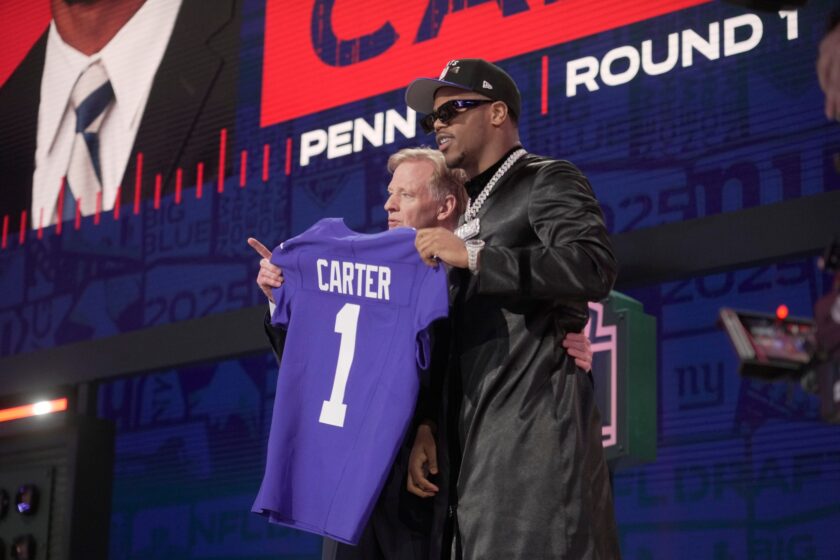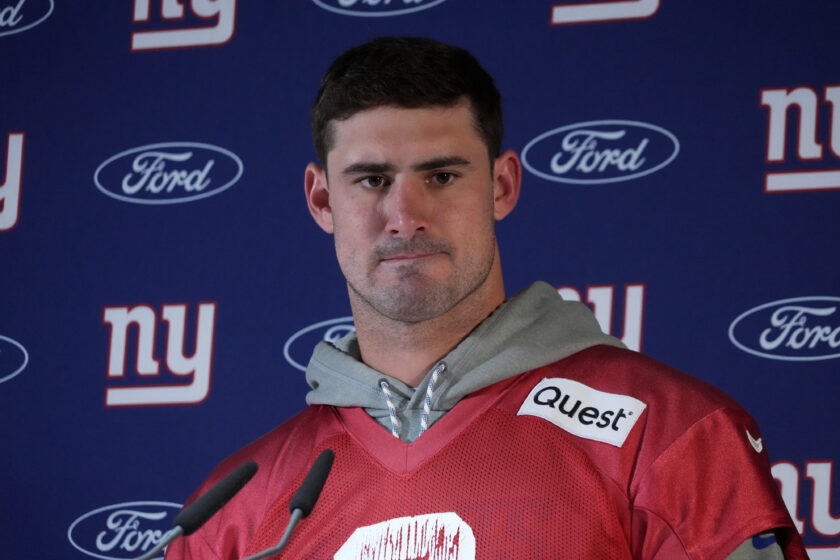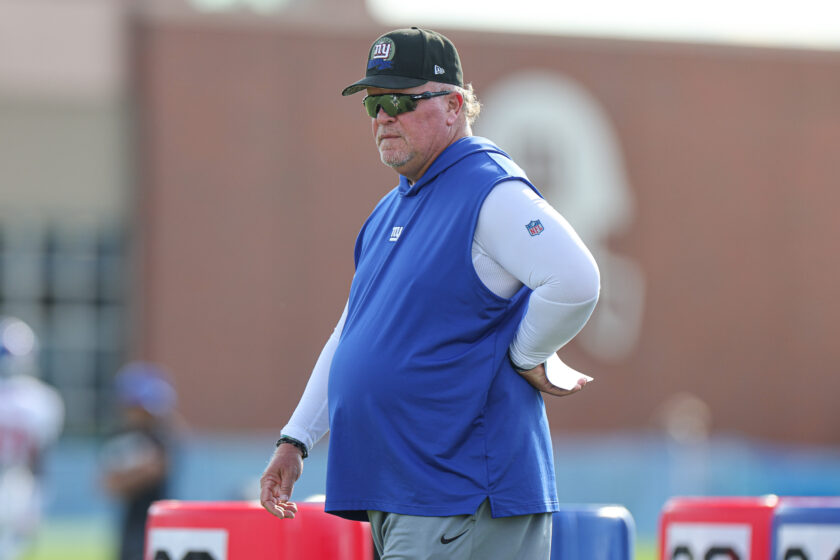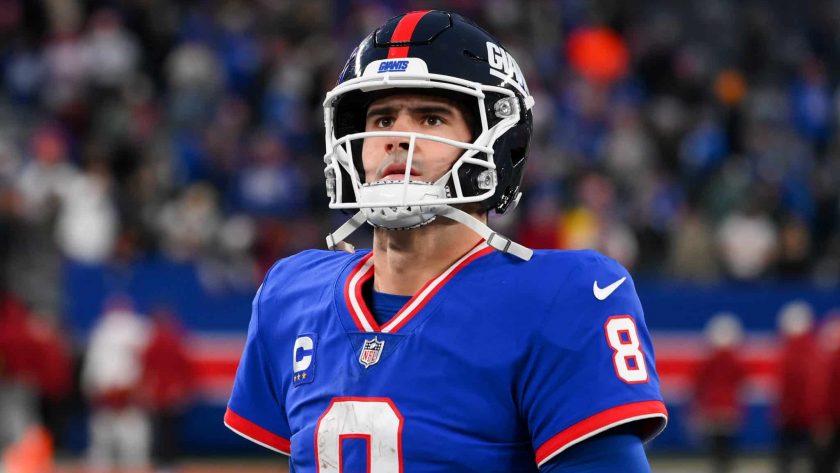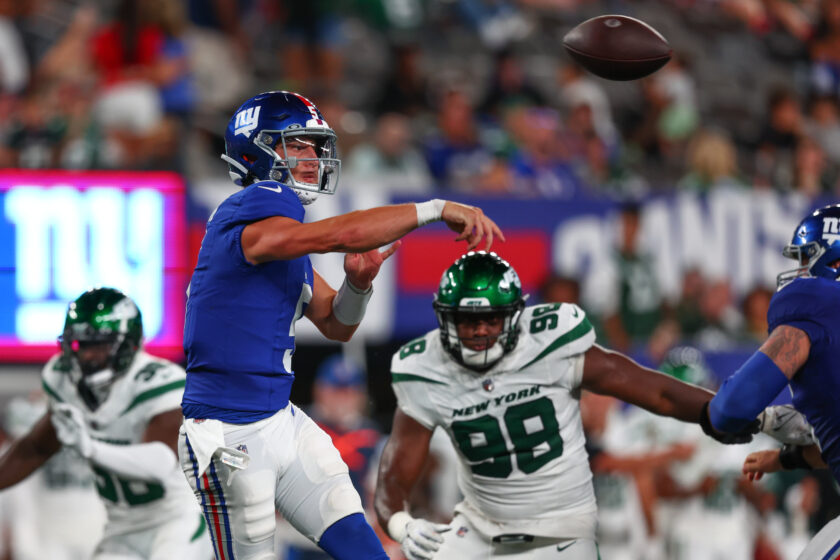Sixteen years of 10: A tribute to New York Giants QB Eli Manning
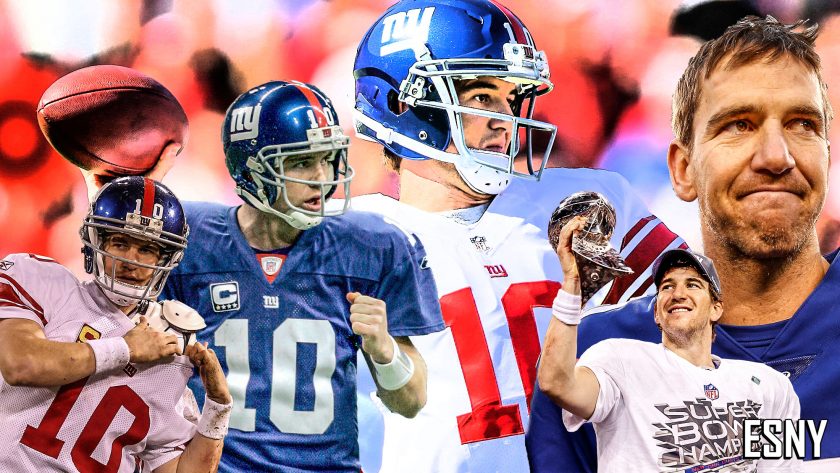
A tribute to Eli Manning, the greatest quarterback to ever step foot on a football field in the history of the New York Giants franchise.
[sc name=”ryan-honey-banner” ]I was seven years old when I went to my first New York Giants game. August of 2004 — to be exact — at Giants Stadium. It was a preseason game, particularly the first home exhibition match for a then-rookie quarterback.
A few months prior, the Giants executed a draft-day trade with the San Diego Chargers. San Diego ended up with Philip Rivers, while Big Blue ended up with a young kid out of Ole Miss.
That then-rookie quarterback and young kid out of Ole Miss happened to be Eli Manning, the brother of MVP quarterback Peyton, and the son of former New Orleans Saints quarterback Archie.
The Giants hadn’t really had a consistent, franchise quarterback since the Phil Simms days. Simms parted ways with Big Blue after the 1993 campaign and retired thereafter. It wasn’t all bad at the quarterback position from 1993-2004, but there was just no consistency.
Manning was destined to change that. He did.
“Sixteen years of 10.”
It was in Eli’s second year when the Giants made it back to the postseason. It was in his fourth when he won a Super Bowl title, a game in which he, of course, won the MVP. In his fifth, New York earned a first-round bye after finishing 12-4 in the regular season. In that same campaign, Manning experienced his first trip to the Pro Bowl.
In his eighth season, the team won a Super Bowl again, with Manning subsequently holding up the MVP trophy for a second time. During year No. 13, he experienced a new head coach in Ben McAdoo, his first NFL head coach not named Tom Coughlin. In year 14, that new coach decided to bench Manning for a Week 13 game against the Raiders, leading to his firing.
The decision ended Manning’s streak of 210 consecutive starts.
Year 15 saw another new head coach in Pat Shurmur. And then, year 16 saw the end. Daniel Jones, a young, rookie quarterback – something Manning once was – emerged and began the next era for the Giants, as Eli began to ride the bench.
Through the good and the bad, the thick and the thin, the championships and the depth chart moves, Manning never said a word. He came to work, did his job, and put his team in the best position to win. Every. Single. Week.
A huge discussion going forward will be if he’s a surefire Hall of Famer. In my mind, he deserves the jacket, but he’s certainly not a lock. Expect the committee to go back and forth on Eli longer than they’ve ever had for any other candidate.
It’s a challenge to find a player that has the type of even-sided argument that Eli possesses. If you break it down, there are so many reasons for why he should make it in, but numerous reasons as to why he shouldn’t.
If it were up to me, he would be in Canton one day. Maybe not first ballot, but he’d be there, nonetheless. Seventh all-time in both passing yards and touchdown passes. Two Super Bowl MVPs, both against arguably the greatest dynasty of all-time, the New England Patriots. To top it off, he boasts four Pro Bowl appearances on his resume.
He was never the greatest quarterback in the league, that’s for sure. But Eli did what many quarterbacks in the NFL fail to do: succeed under pressure and deliver when his team was in its greatest time of need.
Forty-two game-winning drives. That’s right, 42 times when the Giants relied on the arm of Eli to bring them back from the tough, trailing moments.
It’s arguably his most famous statistic and will now live on forever. It’s the total that should force the Hall of Fame committee to answer the huge question with a resounding, “yes.”
The struggling later years were never his fault. He was never the reason why the Giants only made the postseason once from 2012-19. It’s a team sport, and numerous other aspects were at play. The struggles of the offensive line, the bad coaching decisions of McAdoo and Shurmur, along with the poor defenses in certain years.
If we’re going to be completely honest, you could go on and on about the issues this organization has had in the better part of the last decade. Fingers will always be pointed at the quarterback, though, because that’s just the way it goes.
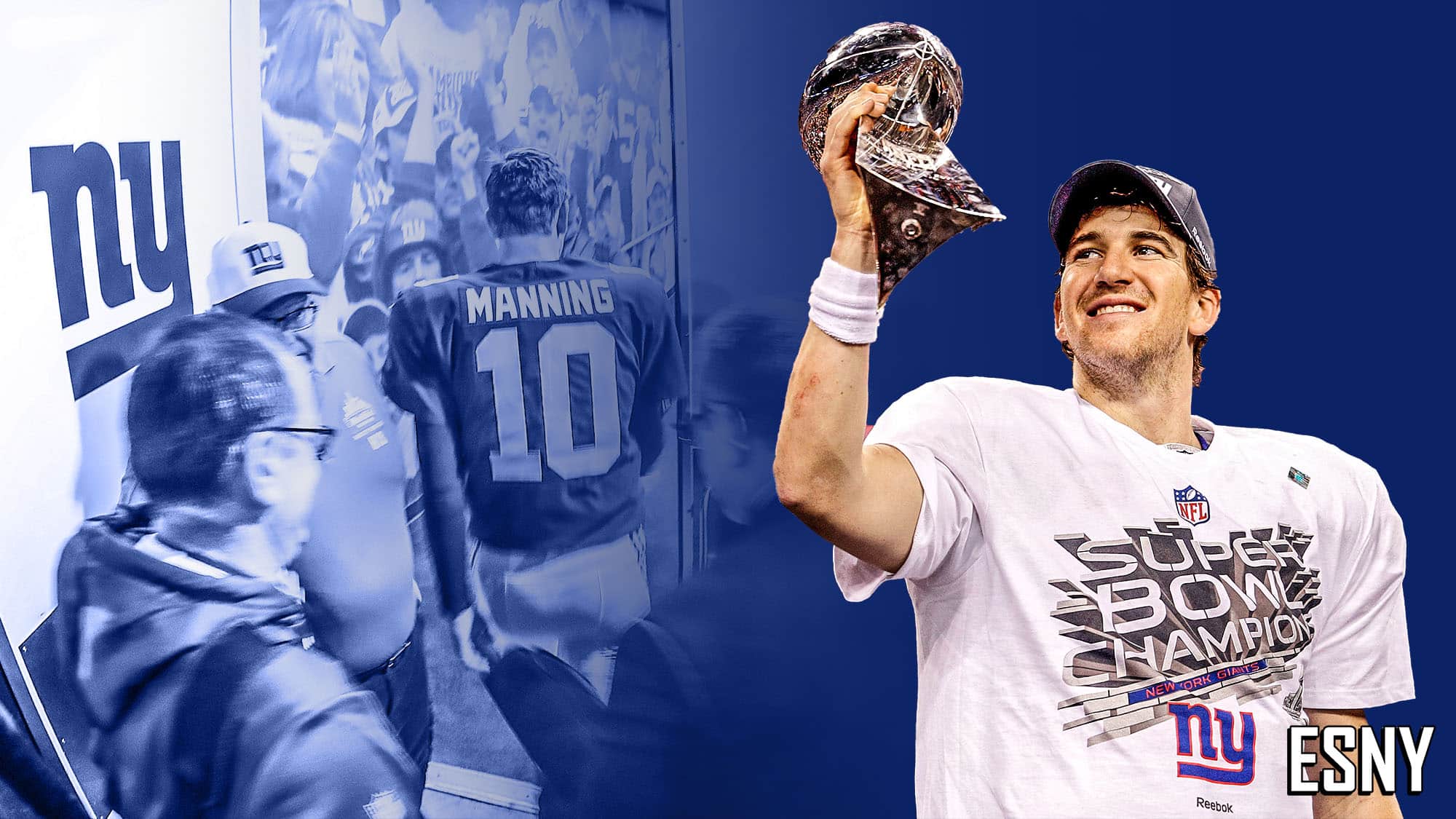
Why do you think quarterback is the lone on-field position in which a record is actually calculated? Wins and losses reflect on them, and there’s no going past that.
The last few years were tough. The Giants haven’t made the postseason since 2016, so it was truly difficult to see Eli miss out on January (and potentially February) football in each of his final trio of seasons.
It’s funny… if you look back at his career, you realize just how different every couple-year period was.
There was the beginning (2004-06) when Manning was making mistakes, throwing picks and learning the position. There were the glory years (2007-12), an era that saw his two titles and three of his Pro Bowl appearances.
Then, the final years of Coughlin came around (2013-15), with the three campaigns ending with 7-9, 6-10 and 6-10 records, respectively. It was a stagnant period and one that led toward the end of the Coughlin-Manning partnership.
The 2016 season was the final productive year for this team with Eli at the helm, with Big Blue finishing 11-5 but coming up short in the wild-card round of the playoffs. And lastly, the final years of Easy-E from 2017-19, the three campaigns that saw 11 combined victories.
Every sub-era was different and experienced both ups and downs. But through each one, we were able to witness the greatest quarterback in the history of the New York Football Giants franchise.
“Sixteen years of 10.”
Sixteen years Giants fans will never forget.

